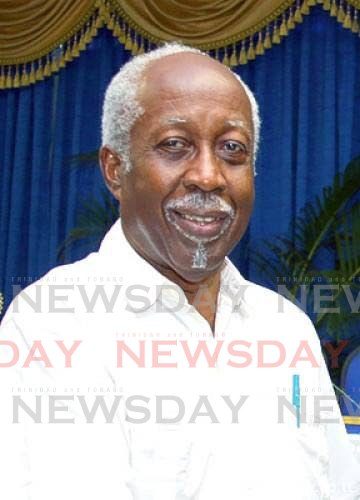Constitutional reform

Reginald Dumas
THE PRIME Minister (PM) has announced an advisory committee to formulate terms of reference for a national dialogue on constitutional reform. The committee, which is to report within three months to the Cabinet, with recommendations, will be a “sounding board” and “post office;” it will, as reported, guide the national debate towards a working document for a constitution conference by mid-2024. I have some questions.
First, why an advisory committee and not a constitution commission?
Second, given the wide range of contacts envisaged for the committee (the diaspora is included), would three months be enough for it to do its work thoroughly?
Third, since the committee is to report to the Cabinet, with recommendations, will the Cabinet have the right to alter or reject any of the recommendations? If so, would the resulting proposals for the constitution conference accurately reflect the views and opinions of those consulted by the committee?
Also, especially since many sections of the Constitution can only be amended by a special parliamentary majority, what role, if any, is envisaged for the Opposition, other than to be consulted as part of the committee’s task?
Fourth, what of the composition of the committee? I cast no aspersions on anyone, but, with the exception of Terrence Farrell, I haven’t known any of the others, over the years, to show a sustained public interest, or any public interest at all, in constitutional matters – indeed, I saw one person’s name for the very first time.
Would the committee therefore be able to deal effectively with the expected wide range of pertinent questions, comments and suggestions in its public meetings?
Fifth, given our suspicious society, and the consequent need for impartiality (or at least the appearance thereof), I hope no member of the committee is in any way closely related to any major political figure in TT. And how many members belong to, or are affiliated with, a political party? We wouldn’t want the committee to be dismissed from the outset as unreliable.
I am myself in favour of constitutional change. I would, for instance, like to see a right to recall barely functioning MPs, of whom we’ve had too many over the decades. I would like to see provision made for referendums. I would like to see more than the lip service currently paid to the concepts of equality and equity, particularly in education. And while many call for reform of the public service, what I would very much like to see is root-and-branch reform of our antiquated (and in many ways anti-democratic) governance system, including the public service.
The Tobago House of Assembly (THA) must also be included in constitutional reform. More questions arise.
Chief Secretary Farley Augustine is reported as saying that proposals on internal self-government sent to Parliament by the THA were not those of his administration but rather of the Orville London administration, and that the proposals had emerged from consultations in Tobago “prior to (his) even becoming a member of the (THA).”
His administration had “not come up with anything new. That is not our place or job.” I see. Further, the only thing the present THA was “prepared to disseminate at this time is really a highlight of all the differences between the (London) bills sent to Parliament and the current bills before Parliament.”
The PM said last year that his government had received from the THA a letter on the autonomy matter signed by the late Hochoy Charles
and Augustine. I must therefore assume that the proposals in the letter were London’s, accepted by Augustine. I commend the bipartisanship, but shouldn’t the proposals have been made available to the people of Tobago?
The PM is reported as saying that the letter ended: “Accept these demands vigorously, unscrupulously, failing which reject the two bills (before Parliament).” The English is a bit odd, but the tone does suggest that the Government was being given an ultimatum – bow to my “demands” or else.
The issuer of an ultimatum is expected to be able to make good on his “or else” threat. If not, he loses face and credibility, and can be ignored, or worse. The reality is that the THA doesn’t have the power or clout to condescend to, or “demand” anything from, the Government. By all means disagree, but keep open the channels of productive communication. Why offend the very body which (if it so wishes) is in the best position to help you achieve your goal?
Now Watson Duke calls for Tobago “self-determination,” a word which used to mean “political independence.” Perhaps it still does. Let the people of Tobago decide – in a constitutionally-approved referendum.

Comments
"Constitutional reform"